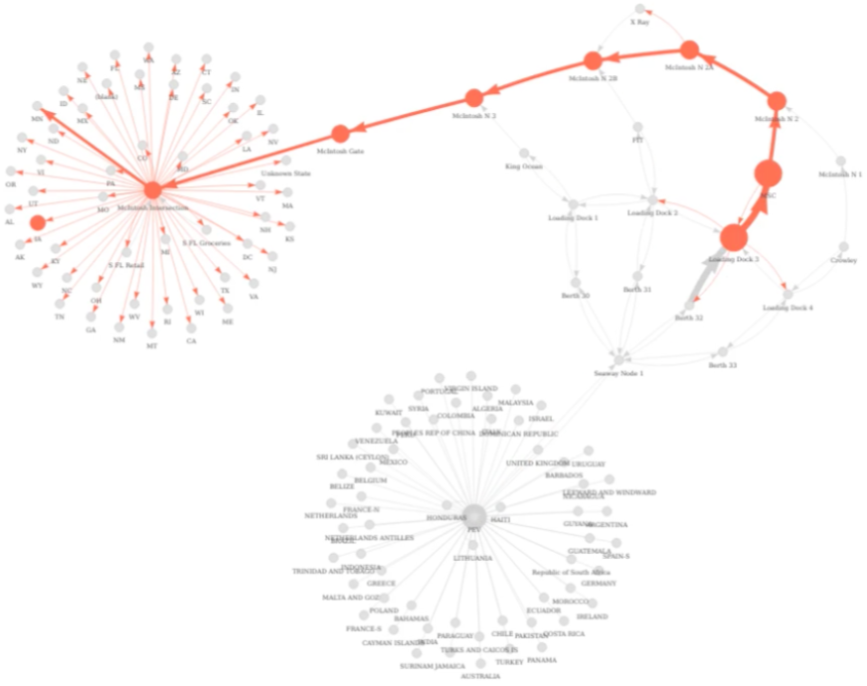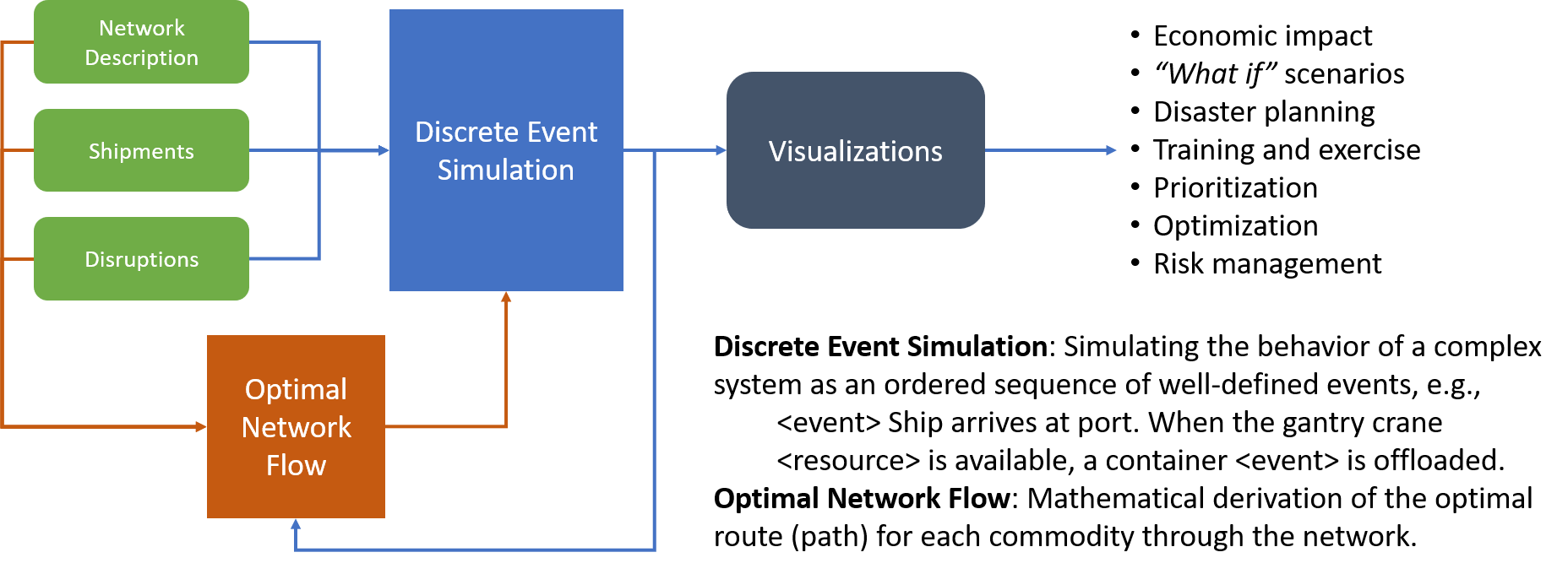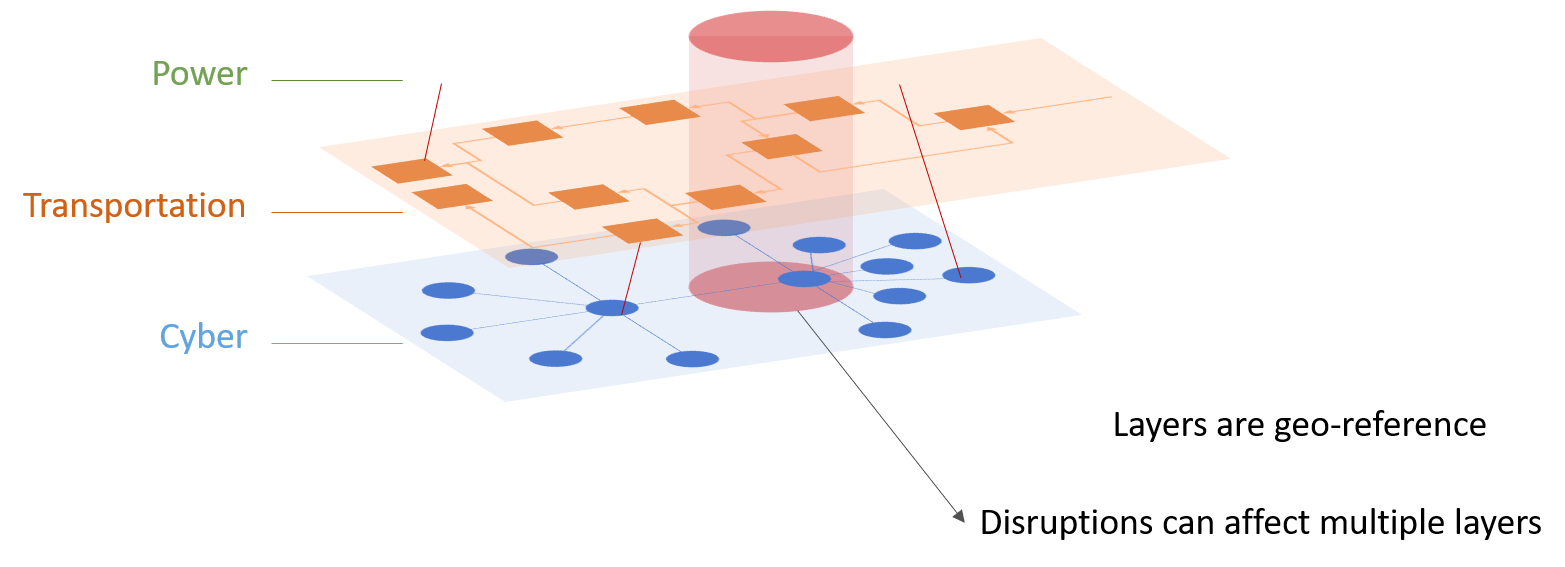Tools
Discrete Event Simulator
The backbone of our simulation framework is a discrete event simulator that is specifically adapted to simulate the movement of goods through a complex maritime port system.

Run Your Own Port Simulations
Join our beta program to access the Port Disruption Tool and run sophisticated simulations using our Discrete Event Simulator. Model real-world scenarios and analyze potential impacts on your port operations.
Request Simulator AccessSimulation Capabilities
- Model complex port operations
- Test disruption scenarios
- Analyze performance metrics
Optimal Network Flow
Our optimal network flow (ONF) simulator optimizes the route and times for the movement of each transportation network object.

Key Components
- Economic impact
- "What if" scenarios
- Disaster planning
- Training and exercise
- Prioritization
- Optimization
- Risk management
Discrete Event Simulation:
Simulating the behavior of a complex system as an ordered sequence of well-defined events, e.g., <event> Ship arrives at port. When the gantry crane <resource> is available, a container <event> is offloaded.
Optimal Network Flow:
Mathematical derivation of the optimal route (path) for each commodity through the network.
Cyber
Our cyber simulation framework enables stakeholders to simulate multilayered cyber networks to explore how changes in the performance in communications/IT networks translate via cross-infrastructure dependencies to affect commodity flows within the Maritime Transportation System (such as those defined in service contracts).

- Layers are geo-reference
- Disruptions can affect multiple layers